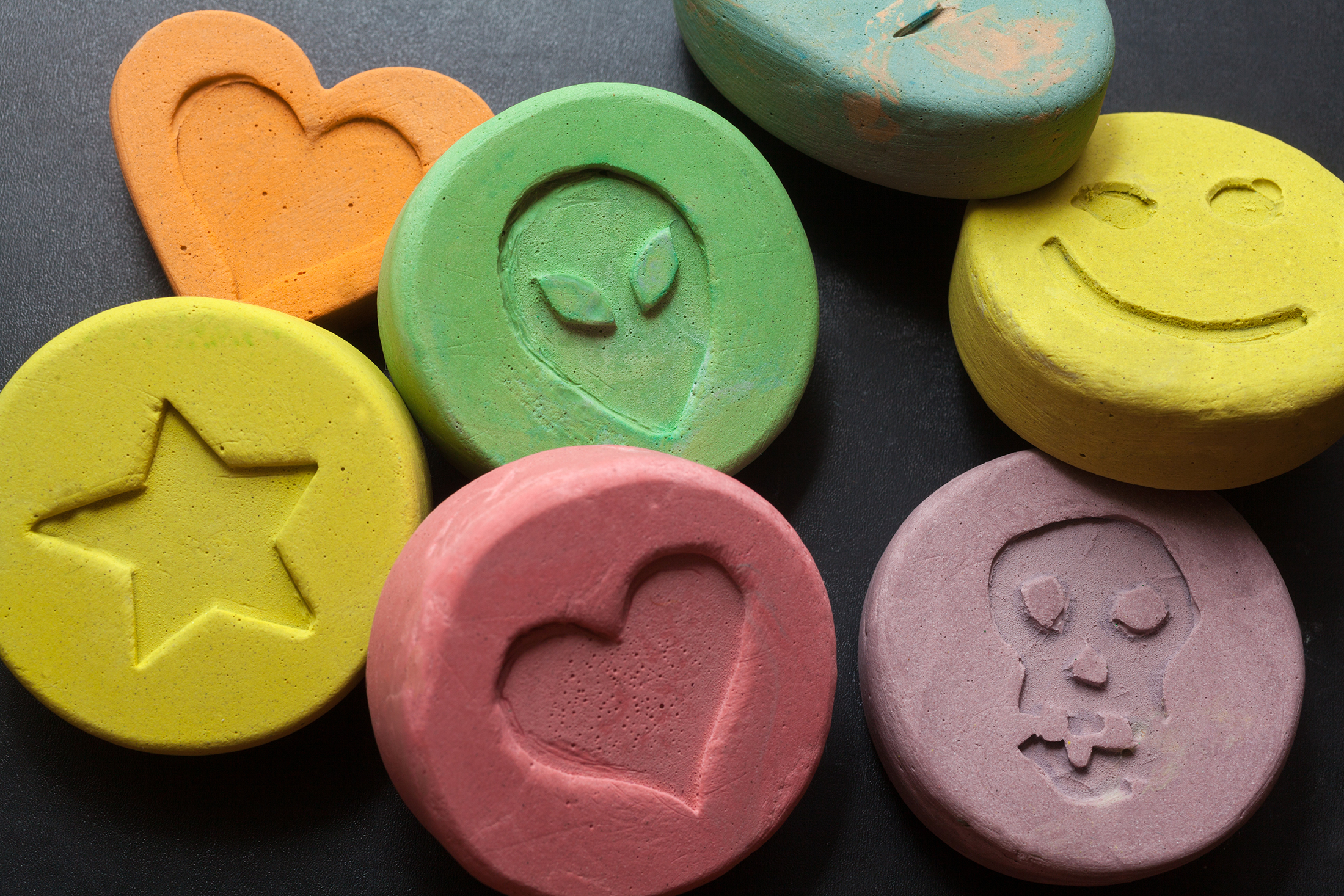By Kelly Patricia O’Meara
May 28, 2015
Despite its well documented harmful and even life-threatening effects, a California psychiatrist and his partner, a therapist, have received the federal government’s blessing to study the illegal “party drug,” ecstasy, the street name for the psychoactive drug (MDMA), in the possible “treatment” of anxiety and depression. Given the information provided about ecstasy by federal agencies, one can only wonder what the government is thinking.
Marin County, CA, psychiatrist, Dr. Philip Wolfson, says of his approved study that the use of ecstasy can be “transformationally potent” (sic) and “it’s a substance that supports deep, meaningful and rapidly effective psychotherapy.”
Ironically, although the Drug Enforcement Administration (DEA) has approved the use of the illegal substance for Wolfson’s study, the federal agency, which lists ecstasy as a Schedule I drug, meaning it has the highest potential for abuse and no currently accepted medical use, reports no “meaningful” or therapeutic effects of the drug.
In fact, according to the DEA’s “DRUG FACT SHEET,” ecstasy—MDMA (3.4-methylenedioxy-methamphetamine)—“acts as both a stimulant and psychedelic, producing an energizing effect, distortions in time and perception.” The DEA further reports that MDMA causes “confusion, anxiety, depression, paranoia, sleep problems, and drug craving,” which may last weeks after ingestion.
And the DEA says “no other drug is quite like MDMA, but MDMA produces both amphetamine-like stimulation and mild mescaline-like hallucinations…” and “it is ironic that a drug that is taken to increase pleasure may cause damage that reduces a person’s ability to feel pleasure.” Finally the DEA says of ecstasy that there is “no currently accepted medical use in treatment in the United States, and a lack of accepted safety for use under medical supervision.”
Nora Volkow, M.D., the director of the National Institute on Drug Abuse (NIDA) is on the same page as the DEA, reporting “MDMA is not new to the scientific community, as many laboratories began investigating this drug in the 1980’s, and the picture emerging from their efforts is of a drug that is far from benign.” Volkow says that MDMA can cause “a dangerous increase in body temperature that can lead to kidney failure, increase heart rate, blood pressure, and heart wall stress…and damage specific neurons in the brain.”
This new MDMA study actually highlights bigger issues about chemical “treatments.” For example, today there are hundreds of pharmaceutical mind-altering drugs readily available for the “treatment” of alleged mental disorders, including anxiety and depression, mild, medium or severe (despite no scientific capability of measurement).
Many of the mind-altering drugs, which have been on the market for decades, allege to effectively alter specific chemical levels in the brain, providing relief from whatever alleged mental disorder is diagnosed. However, if these drugs actually “treated” anxiety or depression, why would mental health feel the need to resort to scraping the drug barrel, studying the use of “party drugs?”
As is typical of psychiatric “research” no scientific tests (MRI, CAT, X-Ray, blood or urine tests) will be conducted during Wolfson’s ecstasy study but, rather, results will be based on the observations “of a pair of trained therapists.”
Based on the pre-study remarks of Wolfson and his partner, Julane Andries, a licensed family therapist, there seems little doubt about the study’s outcome. According to Wolfson partner Andries, ecstasy “treatment” is all Kumbaya and tiptoeing through the tulips and so very Marin County if one recalls the 1978 documentary “I want it all now!”
“MDMA,” says Andries, “can help us experience awe, and that eases anxiety and depression.” “Later,” says Andries, “you can hold onto that memory of feeling vital, alive, happy and full of awe.”
Wow, sounds groovy, but these sentiments are not backed up by science. According to the information provided by the DEA, NIMH and NIDA, the effect of ecstasy on users is anything but “awesome.” And it is of interest that the research team fails to mention the very real possibility of the other side to ecstasy. Negative feelings, such as fear, paranoia, confusion and hallucinations also can be heightened. What happens to those participants? Will they “hold onto that memory?”
–
Kelly Patricia O’Meara is an award-winning former investigative reporter for the Washington Times’ Insight Magazine, penning dozens of articles exposing the fraud of psychiatric diagnosis and the dangers of the psychiatric drugs—including her ground-breaking 1999 cover story, “Guns & Doses,” exposing the link between psychiatric drugs and acts of senseless violence. She is also the author of the highly acclaimed book, Psyched Out: How Psychiatry Sells Mental Illness and Pushes Pills that Kill. Prior to working as an investigative journalist, O’Meara spent sixteen years on Capitol Hill as a congressional staffer to four Members of Congress. She holds a B.S. in Political Science from the University of Maryland.




SHARE YOUR STORY/COMMENT